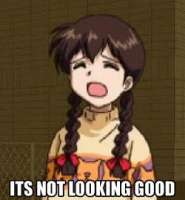「landposting」
anon
Because grievance status is awarded as political compensation for economic incompetence, it constructs an automatic cultural mechanism that advocates for dysfunction. The Universalist creed, with its reflex identification of inequality with injustice, can conceive no alternative to the proposition that the lower one’s situation or status, the more compelling is one’s claim upon society, the purer and nobler one’s cause. Temporal failure is the sign of spiritual election (Marxo-Calvinism), and to dispute any of this is clearly ‘hate’.
This does not compel even the most hard-hearted neo-reactionary to suggest, in a caricature of the high Victorian cultural style, that social disadvantage, as manifested in political violence, criminality, homelessness, insolvency, and welfare dependency, is a simple index of moral culpability. In large part – perhaps overwhelmingly large part – it reflects sheer misfortune. Dim, impulsive, unhealthy, and unattractive people, reared chaotically in abusive families, and stranded in broken, crime-wracked communities, have every reason to curse the gods before themselves. Besides, disaster can strike anyone.
In regards to effective incentive structures, however, none of this is of the slightest importance. Behavioral reality knows only one iron law: Whatever is subsidized is promoted. With a necessity no weaker than that of entropy itself, insofar as social democracy seeks to soften bad consequences – for major corporations no less than for struggling individuals or hapless cultures — things get worse. There is no way around, or beyond this formula, only wishful thinking, and complicity with degeneration. Of course, this defining reactionary insight is doomed to inconsequence, since it amounts to the supremely unpalatable conclusion that every attempt at ‘progressive’ improvement is fated to reverse itself, ‘perversely’, into horrible failure. No democracy could accept this, which means that every democracy will fail.






